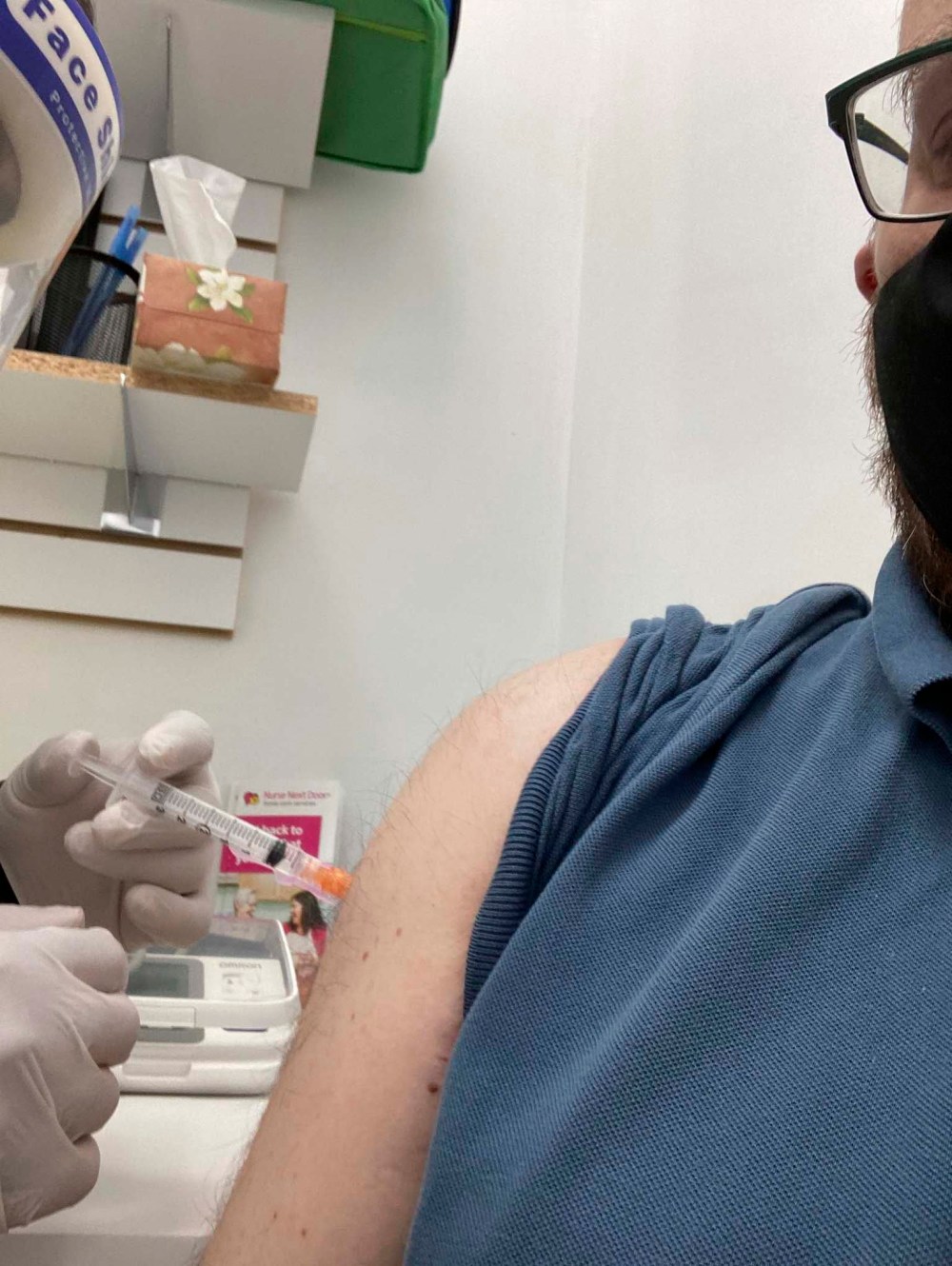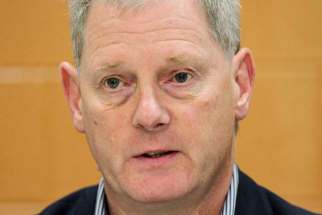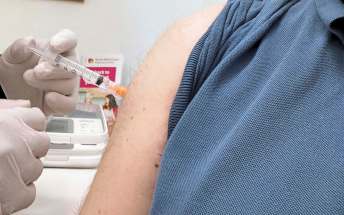A shot of hope The world didn't change when I got my first dose, but the end of the tunnel got a bit closer
Read this article for free:
or
Already have an account? Log in here »
To continue reading, please subscribe:
Monthly Digital Subscription
$0 for the first 4 weeks*
- Enjoy unlimited reading on winnipegfreepress.com
- Read the E-Edition, our digital replica newspaper
- Access News Break, our award-winning app
- Play interactive puzzles
*No charge for 4 weeks then price increases to the regular rate of $19.00 plus GST every four weeks. Offer available to new and qualified returning subscribers only. Cancel any time.
Monthly Digital Subscription
$4.75/week*
- Enjoy unlimited reading on winnipegfreepress.com
- Read the E-Edition, our digital replica newspaper
- Access News Break, our award-winning app
- Play interactive puzzles
*Billed as $19 plus GST every four weeks. Cancel any time.
To continue reading, please subscribe:
Add Free Press access to your Brandon Sun subscription for only an additional
$1 for the first 4 weeks*
*Your next subscription payment will increase by $1.00 and you will be charged $16.99 plus GST for four weeks. After four weeks, your payment will increase to $23.99 plus GST every four weeks.
Read unlimited articles for free today:
or
Already have an account? Log in here »
Hey there, time traveller!
This article was published 22/03/2021 (1725 days ago), so information in it may no longer be current.
There were no fireworks nor were there any banners, streamers and confetti.
Getting a COVID-19 vaccination last Thursday proved to be a ho-hum moment. Nothing in the world changed because I went to JM Pharmacy in St. Vital and Rahul Patel injected a dose of Covishield into my right arm, which was sore for a couple of days afterward, unlike my non-reactions to annual flu vaccines.
It was actually more of a shock to get an appointment after learning the province listed transplant patients under 65 who take immune-suppressing drugs as priority cases for Covishield doses. Cancer patients receiving chemotherapy and those on dialysis were among those with higher priority, and rightly so.
Covishield is the brand name for the Oxford-AstraZeneca COVID-19 vaccine made in India. It’s a two-shot treatment the company announced Monday was 79 per cent effective at preventing symptomatic COVID-19 and was 100 per cent effective at preventing serious illness and hospitalization in a trial held in the United States.
The vaccine, like others created by Pfizer-BioNTech, Moderna and Johnson & Johnson that Health Canada has approved, is a scientific and medical marvel. How several vaccines were created, tested and found effective against the deadly COVID-19 in less than a year and have been proven to be a safe treatment is humanity’s greatest discovery in the 21st century.
What those treatments can’t do is change the past. They can’t bring back all those events that were cancelled in the past year and they can’t bring back those family moments, such as weddings, birthdays and anniversaries that either had to be postponed, cancelled or take place with just a couple of close relatives who had to keep their distance.
And they certainly can’t bring back the 917 Manitobans who have died from COVID-19. Nor will they bring back the more than 22,000 Canadians or the 2.72 million people around the world who lost their lives to the coronavirus.
So celebrations are in questionable taste. No one was invited over for a drink to mark the vaccination occasion and there was no rush to the computer to search for vacation ideas.
Isolation became such an emotional strain that coming into the office on Wednesdays became a strange therapy.
One big reason for that is the treatment isn’t finished. The Oxford-AstraZeneca shot is actually two shots, the second coming in the next month or two.
While governments and researchers have trumpeted the effectiveness of the first of these two-shot vaccines — some provinces have delayed second shots of Pfizer-BioNTech or Moderna vaccines in order to give more people their first dose — that second shot appears to be critical for those who take immune-suppressing medication.

A study of 436 transplant recipients published March 15 in the Journal of the American Medicine Association, found “the majority of participants did not mount appreciable antispike antibody responses” from the first doses from the Pfizer-BioNTech and Moderna vaccines. The study’s findings “suggest that such patients may remain at higher early risk for COVID-19 despite vaccination.”
You can check out the study here.
While the Oxford-AstraZeneca’s vaccine is different than the two studied, the research is more than enough to say it’s back to the ol’ drawing board: stay at home, keep your distance, wash your hands, wear masks. You know the routine.
A year ago Wednesday, the Free Press published my thoughts about the pandemic’s early days, and how the lockdown resembled the early months after my kidney-transplant surgery in June 2019. We needed to stay home and take our boring medicine until the coronavirus threat had passed.
Well it hasn’t passed. The pandemic in Manitoba ebbed in the summer, making the warm months not so dull. Walking routines were lengthened, a rare good habit that’s become part of a daily routine. Manitobans embraced outdoor activities like never before.
Our diligence has allowed us to live, whether that has meant following the common-sense pandemic rules or leaving aside much of what we enjoy.
The winter, as short as it was, proved to be a challenge, especially February’s deep freeze. Isolation became such an emotional strain that coming into the office on Wednesdays became a strange therapy, a reminder that there were friends and colleagues, actual people, on the other end of those emails and Slack chats.
Spring’s official arrival last weekend, with warm weather matching the calendar for once, was energizing.
Our diligence has allowed us to live, whether that has meant following the common-sense pandemic rules or leaving aside much of what we enjoy, such as an arena concert, a night at the movies or a restaurant meal with friends or relatives.
The rollout of vaccines holds a promise that we can be alive, and those lively activities can return one day.
Are we there yet? No, just a bit more to go.
alan.small@freepress.mb.ca
Twitter:@AlanDSmall

Alan Small has been a journalist at the Free Press for more than 22 years in a variety of roles, the latest being a reporter in the Arts and Life section.
Our newsroom depends on a growing audience of readers to power our journalism. If you are not a paid reader, please consider becoming a subscriber.
Our newsroom depends on its audience of readers to power our journalism. Thank you for your support.






